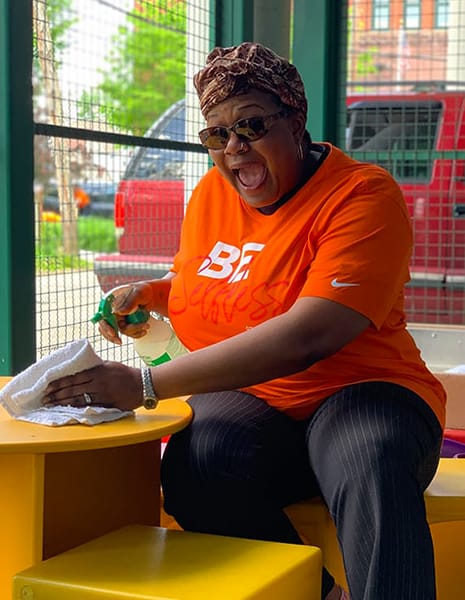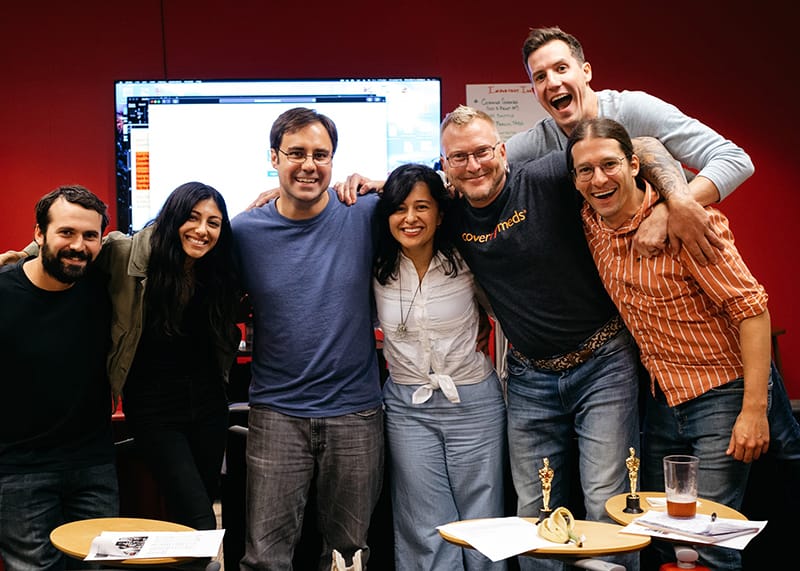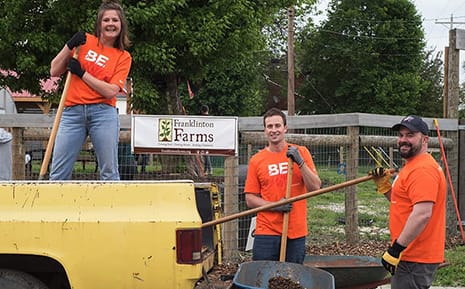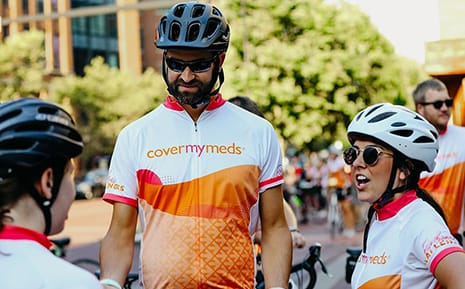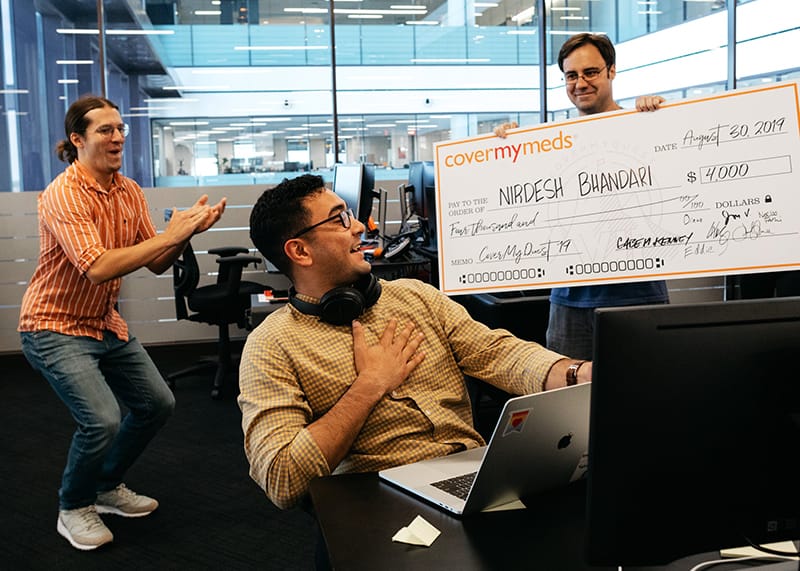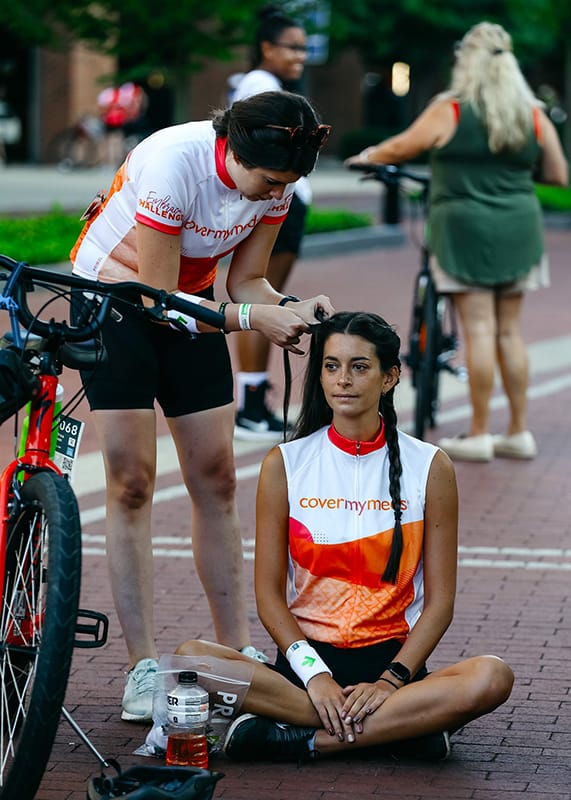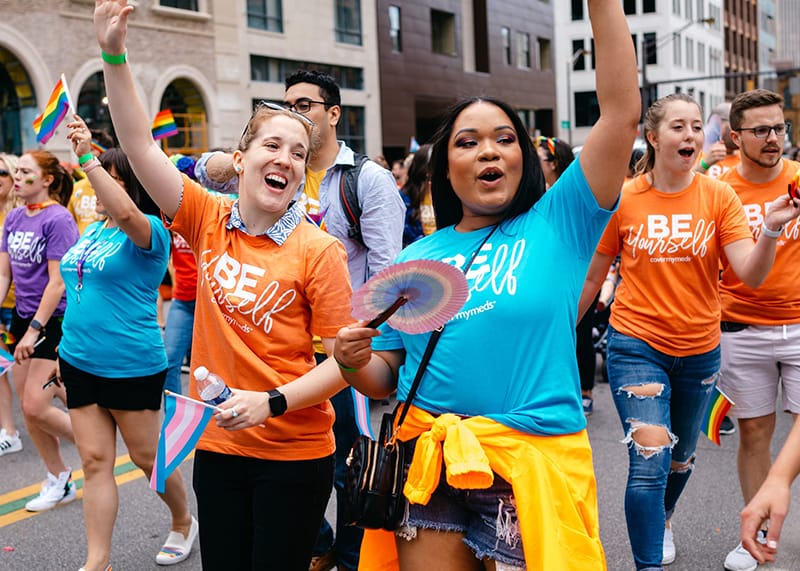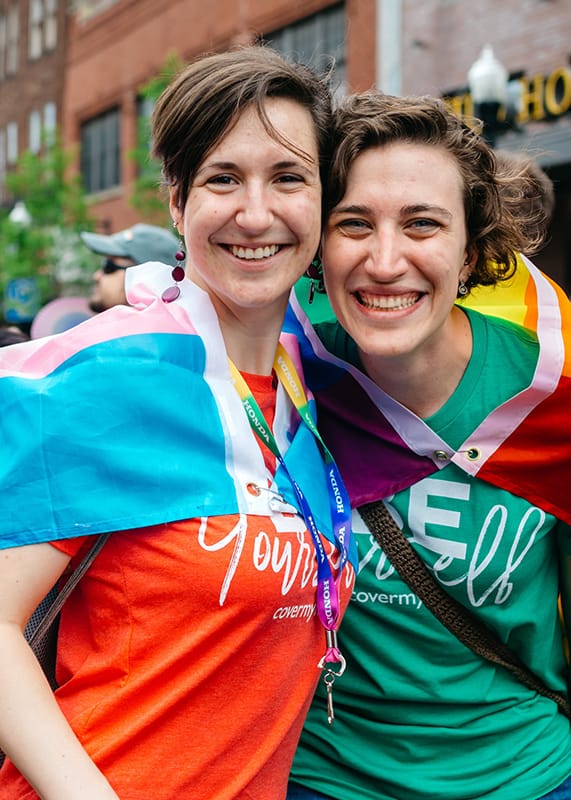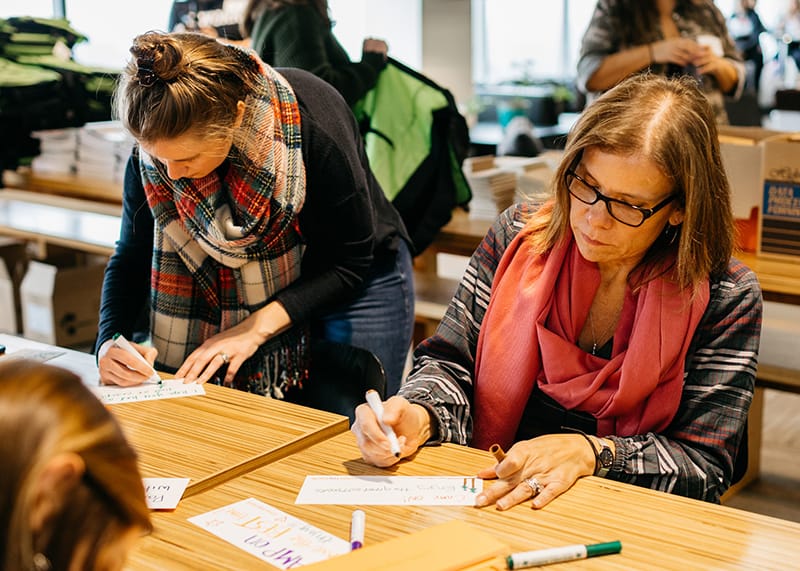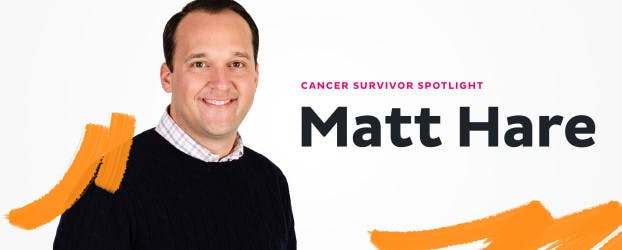
10 Years After Diagnosis, Cancer Survivor Focuses on the Future
In honor of National Cancer Survivors Day on June 7, we spoke with CoverMyMeds' Matt Hare about his journey as a survivor, patient advocate, husband and father.
Matt Hare hadn’t felt his best for weeks, but nothing could have prepared him for the diagnosis: Multiple Myeloma. At 25, he had been diagnosed with a cancer that typically affects people in their 70s.
That shock was the first step on a long, tough journey toward living a healthy life. At times, Matt wasn’t sure he’d ever reach “normalcy” again.
This year, Matt and his family (wife Kate, a marketing manager at CoverMyMeds, and daughter Campbell) celebrate 10 years since his bone marrow transplant — and life in remission.
In honor of National Cancer Survivors Day on June 7, we spoke with him about his journey as a survivor, patient advocate, husband and father. Ten years on, Matt, senior director of Network Services and Clinical Content at CoverMyMeds, is still amazed at the path he’s paved since diagnosis — and passionate about paying it forward for others.
CoverMyMeds (CMM): How did you learn you had cancer?
Matt Hare (MH): I was diagnosed in August 2009, but I hadn’t felt well since April. I was in the hospital for two or three weeks before they realized I had cancer — though it wasn’t for any lack of care. The average Multiple Myeloma patient is much older, so it wasn’t even a thought for me. The testing for Multiple Myeloma is pretty specific. I was fortunate my doctors suggested it, because the plan at that stage was to let me go home and get my name on a list for a liver transplant; they thought it was a liver condition. Multiple Myeloma can go under the radar, and by the time it’s caught, it’s often too late.
CMM: Thinking back to the day of diagnosis, what was your initial thought? What were your fears?
MH: Honestly, I don’t remember the diagnosis. I was intubated in the ICU, because I’d gotten an infection in the hospital. They ran the test and had my parents sign documentation stating they’d make the big decisions for me. It was a couple days later that I was in a place where I could understand it; I was already receiving chemotherapy.
This was back before you could look up things quickly on your phone, so I wasn’t able to do much of my own research at first. I felt this weird acceptance of, “I’m probably not going to live with this,” but I never had a huge realization moment, per se. It was more complex than that.
CMM: And then you received the Amyloidosis diagnosis. What can you tell us about that?
MH: A lot of Multiple Myeloma patients have Amyloidosis as well. To put it simply, it’s the buildup of protein that’s typically expelled, and it can lead to organ failure. I had total kidney and liver failure but, thankfully, the treatment is the same for both conditions. While I was in Cleveland, I had a dialysis treatment twice a day, and I thought I might need it for the rest of my life. I am incredibly fortunate that I’ve recovered the way I have.
CMM: A cancer diagnosis is tragic at any stage of life, but 25 seems like a particularly difficult time.
MH: I turned 26 in the hospital. It was tough, watching my peer group move on with their lives. It was very strange to experience that, and I sort of reconciled I might not have a long life. It was helpful, though, to join some support groups — though I brought the age down by about 50 years!
CMM: You received care at the Cleveland Clinic and then at The James Comprehensive Cancer Center at OSU.
MH: I spent eight weeks at the Cleveland Clinic, in and out of the ICU. It was a vicious cycle. Once I was able to leave the hospital, I considered coming down to Columbus, but I wasn’t sure at the time if there was a Multiple Myeloma specialist here. My aunt happened to share an article from the Columbus Dispatch with me, about a cancer doctor riding in Pelotonia: It was about a Multiple Myeloma doctor at the James, Dr. Don Benson. A month later, I came down to Columbus and met with him; I knew immediately that I was in the right place.
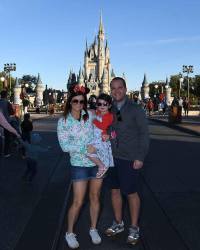
CMM: What’s the status of your treatment now?
MH: I still see Dr. Benson quarterly. There’s no cure, and there’s a high recurrence rate, so I do what I can to make sure we’re ahead of everything. At my initial diagnosis, I had 80 percent involvement in the bone marrow, so I see my doctor frequently. It’s lifelong treatment.
CMM: What would you share with others who are diagnosed with this disease?
MH: I’m fortunate to get to do a lot of speaking on this topic, and I’m often connected with those who are newly diagnosed. My advice would be to advocate for yourself. It’s such a jarring experience, and you have to remember to ask questions and be clear about your goals. Also, understand that support is so important. Kate and I reconnected while I was in treatment, and she has never left my side throughout all of this. She gave me the push I needed to not wallow in the unknowns; she dug her heels in and didn’t budge. I don’t know what the outcome would have been without her support.
CMM: Some people may come out of an experience like yours and want to leave it all in the past — as much as that is possible. But you’ve really leaned into philanthropy. How important is it to you that you play the role of advocate, as well as survivor?
MH: Do you know the Woody Hayes’ “pay forward” quote? That rang very true for me. I can’t pay back the phenomenal care I received, but I do have the opportunity to help others in the same circumstances. It feels disingenuous to move on — I feel a massive responsibility.
CMM: After your treatment, you went on to work in development for The James, for a healthcare startup based in Silicon Valley and now, you’re here at CoverMyMeds. Do you think your experience led you toward this career focused on helping patients?
MH: I never would have thought of healthcare before, but this is undoubtedly the path for me now. It goes back to that “paying it forward” sentiment.
CMM: Your family started Baseball Coaches Against Multiple Myeloma, a travel baseball tournament that raises money for cancer research. What’s the status of that event this year?
MH: This is year 12 for the tournament. It was supposed to take place in May, but we’ll try for later this year. So far, we’ve raised about $250,000.
CMM: Now that you’re a father, I’m sure you spend a lot of time thinking of the next generation. What are your hopes for the future of healthcare, especially oncology?
MH: People often mention a “cure for cancer,” but really, it’s thousands of diseases. But I am hopeful. I hope we can continue the philanthropic efforts and the research to make these diseases as manageable as possible. With Kate and I so involved in fundraising and research, I hope that trickles down to Campbell — I hope she sees that service for others is just really important. At some point, we’ve all benefitted from the support of others; I hope we pass that on to her, and that she finds something she cares deeply about. I hope we continue to have amazing doctors who stay dedicated to this work. That’s the most I can really ask for.
